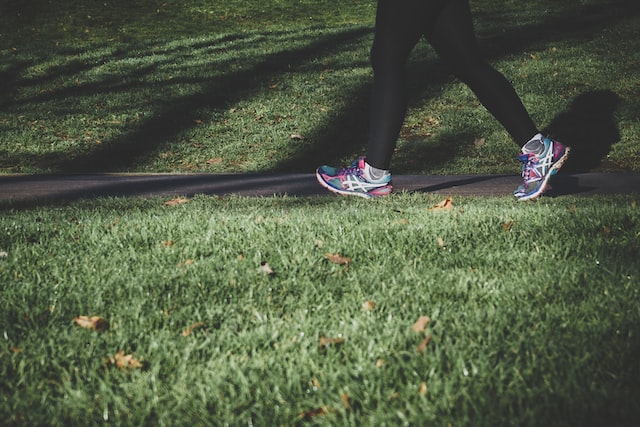The Benefits of Exercise on our Mental Health
Many of us are still living with at least some of the changes lockdown brought into our lives, whether that’s studying online, working from home, or the temptation of just one more episode of [insert the title of your favourite Netflix series here].
And if the summer heatwave sent you running for the shade, hoping to relax and move as little as possible so as not to break into a sweat, you’re not alone.
With the nights drawing in and the temperature starting to drop as we head into autumn, stepping outside to exercise might feel a lot less appealing than it would have during the long spring and summer days.
But it’s vital we take time to look after our mental health, and exercising is a key part of this – no matter how much we might feel like staying in and curling up on the sofa!
How can exercise help my mental health?
We’ve all heard about the benefits of exercise on our physical health. But did you know exercise can have a huge impact on our mental health too? Research has found that exercise is key in boosting your mood and reducing feelings of stress, anxiety and depression.
Getting active can also increase your energy levels during the day and help you to sleep better at night. These changes are partly due to the production of endorphins, which reduce the perception of pain and boost pleasure, resulting in more positive emotions.
But the benefits of exercise go hand-in-hand with the benefits of being outside. When spending large amounts of time indoors, it can be easy to become trapped in your own thoughts and the stresses of daily life.
Taking time to connect with nature can have a calming effect on our emotions and lift our mood. It also gives our brains a break from activities that mentally drain us (such as studying and using technology), resulting in improved focus and concentration.
Being outside in natural light can be especially helpful if you experience seasonal affective disorder (SAD), a type of depression that affects people during certain times of the year.

How can I get started?
Experts suggest your mood can benefit from any form of exercise, no matter the intensity. So whether you’re going for a quick walk around the block or running a 5k, you can still reap the benefits of getting active!
Try to mix up your exercise routine to see what works for you. You could try a virtual exercise class, or download an exercise app such as the NHS-recommended Couch to 5k.
And if you’re going for a walk, why not make it mindful? Leave your headphones at home and use your senses to really take in your surroundings as you go, looking for:
- Five things you can see
- Four things you can feel
- Three things you can hear
- Two things you can smell
- One thing you can taste (Be safe, though! You might need to imagine this one…)
Join Teenage Helpline and put your #BestFootForward
To help motivate you to grab your trainers and get outside, why not take part in Teenage Helpline’s ‘Best Foot Forward’ challenge?
Teenage Helpline volunteers will be seeing how many miles we can walk throughout the month of September, to encourage others to get up and get active, and to raise awareness of our vital mentoring services.
You can keep up with our progress and donate towards our target here. Or join our team on Strava to get fit, have fun and do something for a good cause at the same time!
We hope this article has inspired you to look after your physical and mental health by getting active. But if you have any worries, questions, or want to share your thoughts, get in touch with one of our caring mentors today.
